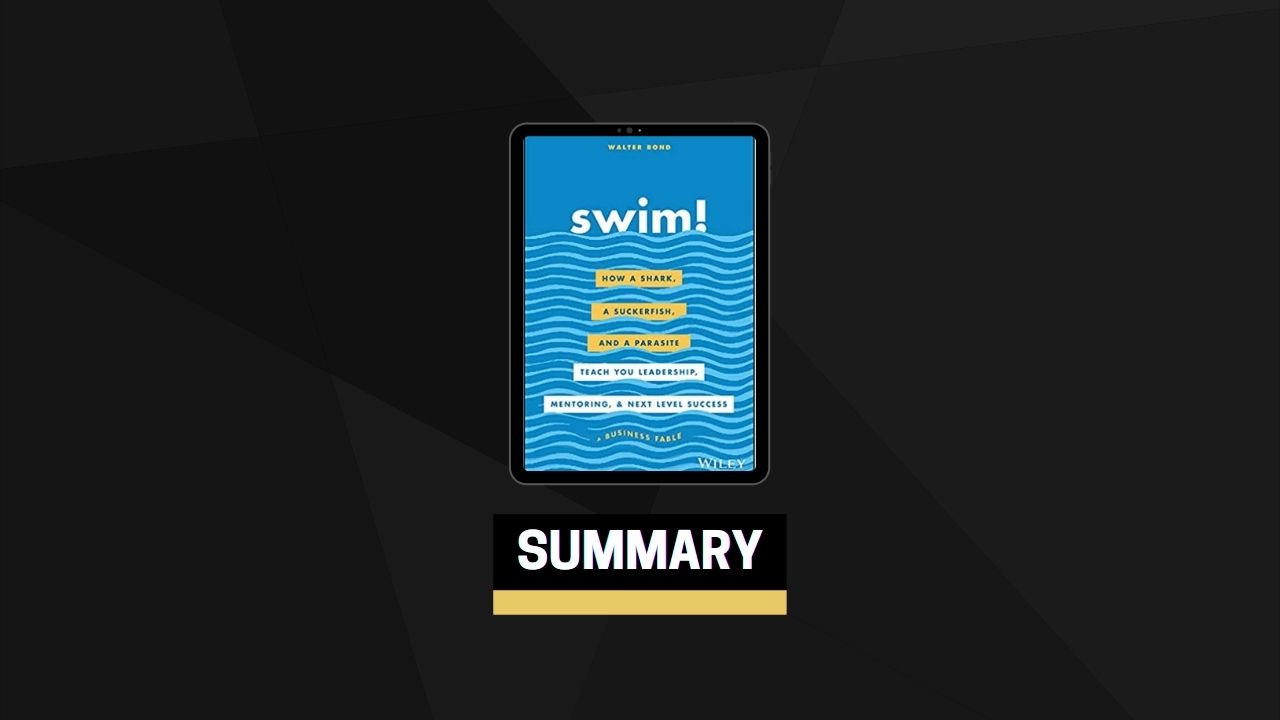Swim Lessons
- Parasites are nasty. Nasty, nasty. They’re an entire species of microscopic nastiness. All they do is spread death and disease.
- They’re small, but they are responsible for the downfall of animals much bigger than they are. They weasel their way in and feed off an unsuspecting shark, slowly draining its energy, health, and ability.
- The shark and the suckerfish benefit from each other, but the parasite adds no value. All a parasite does is take.
- The parasite, of course, does not have the cognitive ability to understand the damage it is doing, but even if it did, it probably wouldn’t care.
- Parasites come in all shapes and sizes, and that a lot of the time, we can be completely unaware that we have a parasite until it has already drained us of our resources and energy.
- A parasite is anyone in your life who takes from you but does not add value.
We all must effectively manage the three types of people in order to be successful. Sharks, suckerfish, and parasites are the only three types of people in this world. Once we can manage them effectively, we can go far in life. We first must understand that we can be all of these people throughout the day, so we need to be humble as we engage others. We manage sharks differently than we manage suckerfish, and we manage parasites way differently than we manage suckerfish.
Sharks identify and respect other sharks.
So this means you are aware of the people in your life who are your peers and are getting it done as well as or maybe even better than you. We all have good qualities, so we should always show respect to our peers. By giving sharks freedom to move throughout your life or business, you add strength to your team. Remember how the sharks in the tank at the aquarium just swam around together without killing each other? This is how you know you’re surrounded by sharks. Everyone knows their role and their value and does not feel threatened or intimidated by greatness.
The suckerfish are managed in a separate way.
They often crave direction and guidance, but once they find their spot, they’re a vital part of the team and become sharks too, with the right support. They are eager to learn and need to be put in situations where they can connect with a shark and be mentored. They want to go places but are aware that they need someone else to help them get there. These people work best when they are challenged. They need their questions met with patience, and they work best when their loyalty and work ethic are acknowledged.
These suckerfish aren’t about getting a free ride. They’re valuable members of the team who understand the power of mentorship and take in and are hungry to learn and grow. Imagine that a great company or organization should be a building full of sharks and suckerfish but not flunkies, ’yes men’ or dead weight either. A suckerfish is nobody’s flunky.
Here is the truth: Great leaders influence; bad leaders rule. A shark should recognize a suckerfish’s weaknesses or shortcomings and have a heart to help them grow and improve, knowing they are valuable. You should know this: Some sharks eat suckerfish. Sad but true, they see the suckerfish’s weakness or shortcomings and feast on it, take advantage of it. Make sense? There is not much difference between a small shark and a giant parasite. Not much difference at all!
Parasites are managed in a completely different way.
In the ocean, the parasite is a parasite. They don’t change and the goal of the suckerfish is to destroy them.
Our mission in managing them is not to destroy them; instead, managing parasites means being honest in your assessment, clear about your boundaries and expectations, and open-minded enough to offer a second chance. Parasites often aren’t aware of how their behavior impacts others or the team and simply need to be called out in love about what they have to do to change. As we know, parasites are often a result of broken or a messy past that has robbed them of their ability to integrate successfully into a social or professional setting. Taking the time to get to know why parasites act the way they do is a first step in helping them change their ways. Parasitic people don’t trust others, and there could be a good reason for that. That’s why there is hope for a parasite—most people who act that way do it out of pain. Remember, hurt people hurt people.
But we know that parasites can quickly take down their host and that they are known for spreading death and disease everywhere they go, so they can’t be left on their own. They can’t be shoved in a back office or ignored in order to keep the peace. Parasitic-type people must be handled swiftly in order to maintain the health and balance of the team. They’re hard to get rid of though, right? So they won’t go without a fight. Your goal is not to fire every parasite and send them to suck the time, energy, and resources from another host; it is to help them evolve into a species that not only gives them a better chance to thrive but gives the company a better chance to thrive as well. However, it is important to know when enough is enough and to be proactive in removing a parasite that has no intention of changing.
The Sacred Six
Sharks never stop moving forward.
Sharks never look down; they always look up.
Sharks are always curious and always learning.
Sharks always respect their environment and recognize other sharks.
Sharks are always flexible.
Sharks always elevate their suckerfish to new levels.


